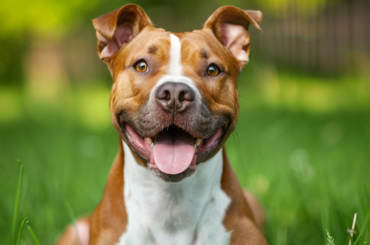If you’re reading this, chances are you’ve just brought home a new puppy and you’re feeling overwhelmed. Don’t worry, you’re not alone. I know exactly how you feel because I’ve been there too. In fact, I’ve been there 12 times. Yes, you read that right. I own 12 dogs of different breeds, sizes and personalities. And I love them all dearly.
But I also know that raising a puppy is not all sunshine and rainbows. It’s hard work, it’s frustrating, and it’s sometimes downright exhausting. You might be wondering if you made a mistake, if you can handle this responsibility, or if your puppy will ever stop biting, barking, peeing or chewing everything in sight.
Well, I have some good news and some bad news for you. The bad news is that your puppy will not magically grow out of these behaviors overnight. The good news is that you can train your puppy to become a well-behaved, happy and healthy dog with some patience, consistency and guidance.
That’s why I wrote this blog post for you. In it, I will share with you some of the most important lessons I learned from raising 12 dogs, from puppyhood to adulthood. You will discover how to:
- Choose the right food, toys and equipment for your puppy
- Set up a safe and comfortable environment for your puppy
- Establish a routine and a schedule for your puppy
- Teach your puppy basic commands and manners
- Socialize your puppy with other dogs and people
- Prevent and deal with common behavior problems
- And much more!
By the end of this blog post, you will have 7 tips to follow to raise a happy and healthy puppy that will become your best friend for life. Sounds good? Then let’s get started!
- Introduce your puppy to its new home: Allow your puppy to explore its new surroundings and get comfortable with its new environment. Show your puppy where its food and water bowls are located, as well as its bed or crate.
- Establish a routine: Establishing a routine for feeding, sleeping, and playtime can help your puppy feel more secure and comfortable in its new home. Puppies thrive on consistency, so try to keep their schedule as consistent as possible.
- Socialize your puppy: Introduce your puppy to new people, animals, and environments to help it become more comfortable and confident. Socialization is important for your puppy’s development and can help prevent behavioral issues later on.
- Provide chew toys: Puppies love to chew, so providing them with appropriate chew toys can help prevent destructive chewing behavior. Make sure the toys are safe and durable.
- Start training early: Start training your puppy early to establish good habits and prevent bad ones. Basic commands like “sit,” “stay,” and “come” can be taught at a young age.
- Be patient: Remember that puppies are babies and require patience and understanding as they learn and grow. Don’t expect your puppy to be perfectly trained overnight.
- Take care of yourself: Taking care of a new puppy can be exhausting, so make sure to take breaks and practice self-care to avoid burnout. Ask for help from friends and family if you need it.
I hope this helps! Let me know in comments bellow if you have any other questions. 🐾




